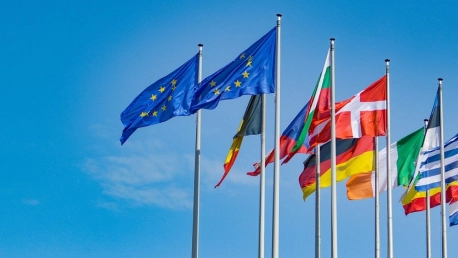President Joe Biden visited Europe for the second time, and this visit paved the way for a new future in foreign policy. The European trip has put an emphasis on shared interests between the American people and G20 World Leaders, as well as other European leaders. The President coordinated with other leaders around the world on issues like climate change, global health, and pandemic readiness. However, the global economic recovery was also among the most important issues on the agenda. As a result of the visit, the United States (US) and European Union (EU) have finally settled the argument over US steel and aluminum tariffs.
The tariffs were initially imposed by former US President Donald Trump three years ago and quickly became a burden for transatlantic relations. Imposing these fees on steel and aluminum imports from the EU meant putting new stress on the US economy, as new EU retaliatory tariffs quickly followed. Furthermore, trade tensions with China also increased during the same period, and a fallout with America’s key trading partners in the EU added even more risks for American companies. By ending the tariff conflict over steel and aluminum, President Joe Biden actually solved many other issues too.
Why it matters
The tariffs imposed by the former President on steel and aluminum mostly hit imports from allied countries like Taiwan, Japan, and the European Union, as well as China. In response, the EU also imposed taxes on some US products like whiskey, powerboats, and motorcycles. However, the US and the EU now decided to resolve this issue, while also addressing the bigger threat of climate change and production overcapacity in the steel industry. Ensuring clean energy technology is important for both the US and the EU, and it can be achieved by using American made steel and other European materials, a solution that comes with an important advantage – it creates hundreds of thousands of jobs in the US.
According to President Biden, another key topic on the agenda is making the largest investment in clean manufacturing yet and thus making sure that the US is still a global leader in the production of green materials, like steel and aluminum. He also went on to say that one of the key goals of his presidency is to show that democracies can indeed produce results for their people, and also solve modern issues in the process. The climate crisis and the economic threat posed by unfair competition by China are two of the most important problems facing the world today, according to national security adviser Jake Sullivan.
The economic implications
The new arrangement is not only profitable for the US, but also beneficial for the EU. It’s worth noting that Europe exported around 5 million tons of steel annually to the US, before the former President took the decision to tax those goods. The new solution means that EU steel and aluminum will now qualify for duty-free status, while the EU will also cut taxes on numerous US products like whiskey, powerboats, and Harley-Davidson motorcycles. American and European manufacturers will probably both benefit from the decision, while new jobs may be created in both regions as a result.
Furthermore, the announcement comes just before the holidays, and whiskey distillers may be more than happy to serve their European customers at this time. “With the removal of these EU tariffs, we are energized and ready to ramp up our American Whiskey promotions in the EU to re-introduce America’s native spirits to EU consumers and resume a great American export success story,” the Distilled Spirits Council said, in a statement for CNN. However, the most important effect of cutting the tariffs is probably that the importing of steel will no longer be prohibitive, and that the cost burden for American industrial sectors now dependent on steel will drop, strengthening the competitiveness of American manufacturers on the global market.
Is the future brighter?
The drop in production costs could be reflected in consumer prices, which may come as good news for both American retailers and manufacturers. Especially considering the COVID-19 pandemic, and its economic implications for both the US and the EU, this can only be encouraging news. However, when it comes to bigger problems like climate change, the decision is probably just a small step forward. “I was proud to announce, together with our close EU partners, another critical win for both American workers and the climate agenda. The United States and the European Union have agreed to negotiate the world’s first trade agreement based on how much carbon is in a product, as we negotiated the steel and aluminum tariffs that were in place,” President Joe Biden later said.
He added the fact that the new solution proves that the US can grow an economy and support American workers while also tackling the climate crisis. His declaration goes to show that stopping the tariff conflict over steel and aluminum might be much more than a new trade agreement. It may serve as a milestone for the economies of the future.









